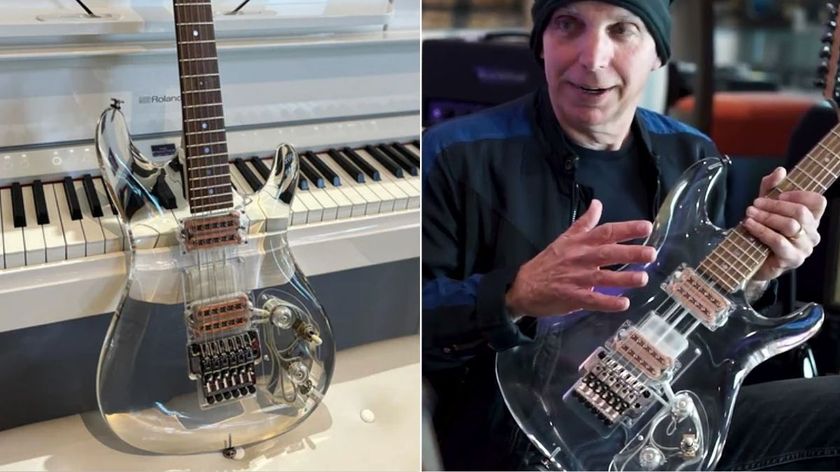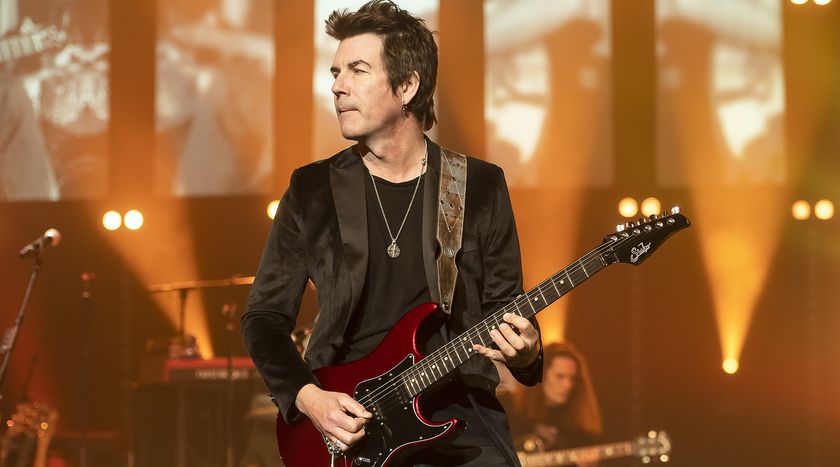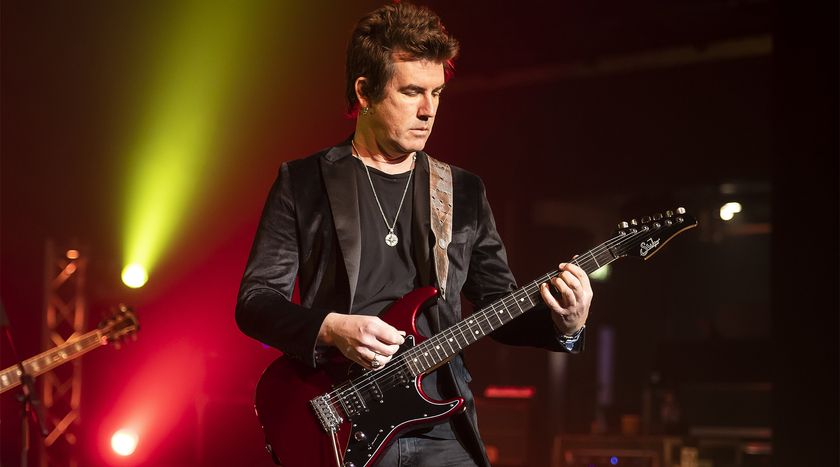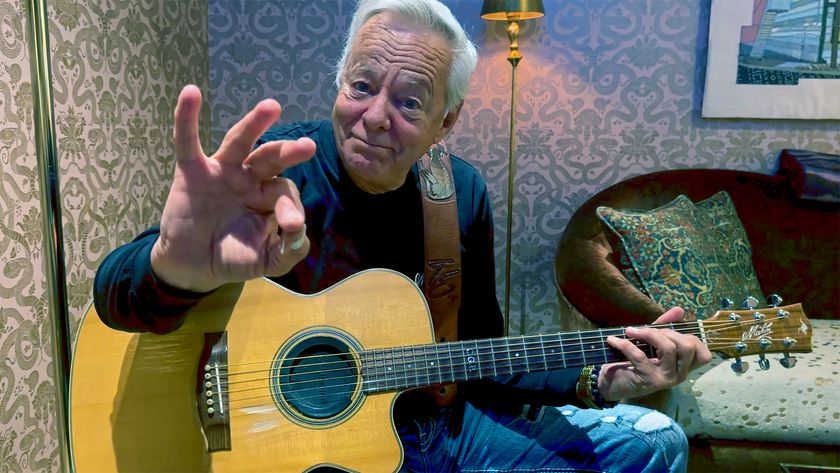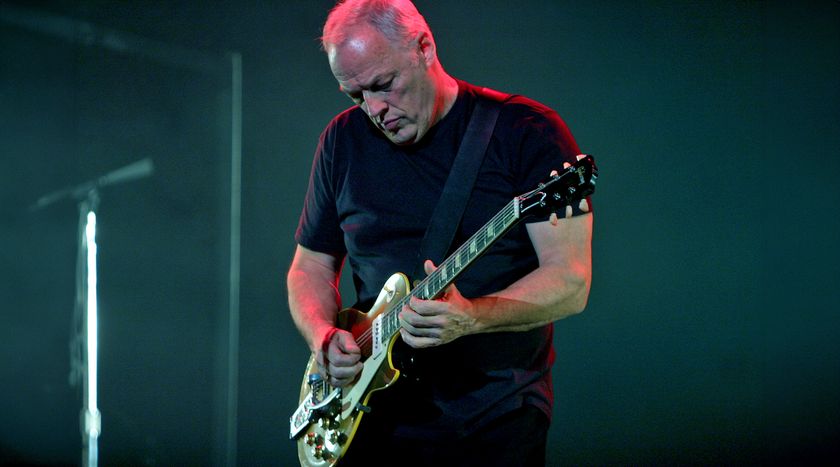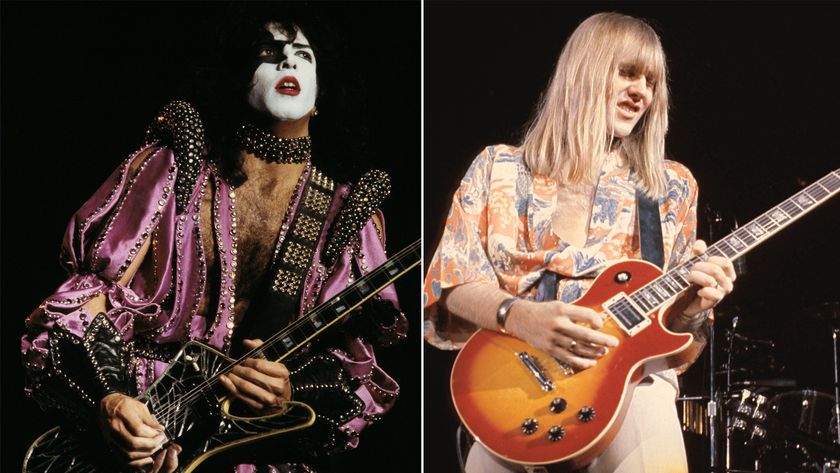Momma Talk Making a Record That Sounds “Bigger Than Any Bands My Dude Friends Were In“
The ‘90s alt-rock devotees bring back molten-hot Big Muff fuzz on 'Household Name'
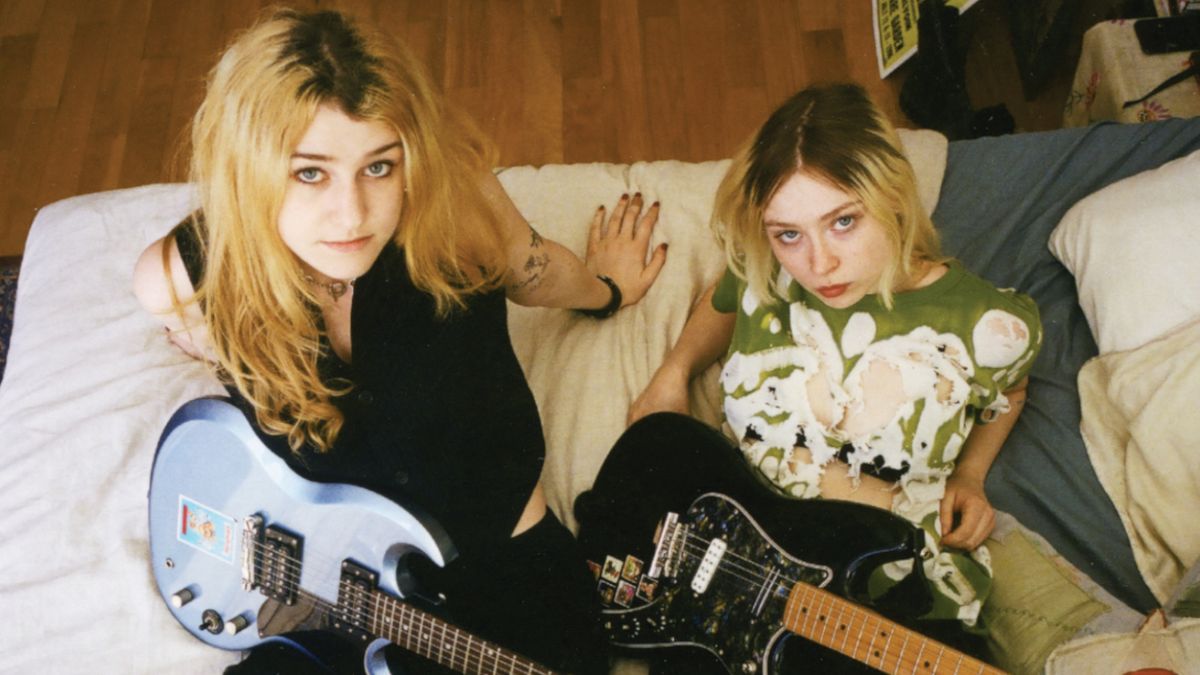
Etta Friedman and Allegra Weingarten, co-guitarists and vocalists for guitar-heavy indie-rock band Momma, are sitting on a Brooklyn stoop, still buzzing after spending their morning chatting up one of their ’90s alt-rock guitar heroes.
“When I was a freshman in college, I taught myself how to play the solo from ‘Number One Blind’ by Veruca Salt,” Weingarten says. “I did those hammer-ons, and I was like, ‘Yo, what?’ And it’s crazy, ’cause we just finished having coffee with Louise Post literally an hour ago.”
The duo surely picked up a thing or two about songcraft from listening to the guitarist’s work with the recently reunited Veruca Salt. But their lingering buzz pales compared to the one that anticipated the July release of Household Name (Polyvinyl), Momma’s third long-player.
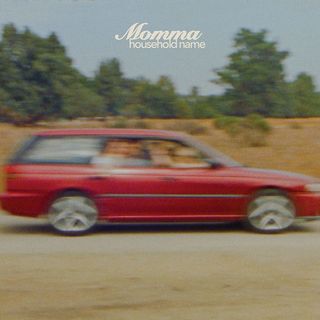
Sequestered in L.A. during the pandemic, Friedman and Weingarten used the time to sharpen their guitar riffs and interplay, perfect their keen sense of melody, and construct a wall of guitars that rivals ’90s touchstones like Smashing Pumpkins’ Siamese Dream.
Forget dropping Household Name songs like “Speeding 72” or “Medicine” on your playlists – the album is its own summertime playlist, a 12-song arc of shimmering and saturated guitars that shares its charms with seminal works by O.G. indie rockers the Breeders and Pavement.
It’s a delicate balance to get the layers just right, but Momma have an ace collaborator in bassist Aron Kobayashi Ritch, a multi-instrumentalist, producer and engineer who has worked on projects by Andrew Bird and Randy Newman.

Ritch helped shape Household Name’s tones and textures, and with his help, that cheeky album title is becoming prophetic.
While the world hums, clangs and beeps around them on this sunny Brooklyn day, Friedman and Weingarten are the calm of their own storm as they talk guitars and their breakout new album.
We finally got the opportunity and the means to sound big
Etta Friedman
Everything sounds bigger on Household Name – the melodies, the songcraft and especially the guitars. How intentional was that shift?
ETTA FRIEDMAN Super-intentional. This is how we have wanted to sound, and I think we finally got the opportunity and the means to sound big.
ALLEGRA WEINGARTEN With the last record, Two of Me, even though we had distorted guitar riffs and tones, it wasn’t like that wall of Big Muff that you get on a record like [Smashing Pumpkins’] “Cherub Rock.” And we really wanted to accomplish that. I feel like we got a lot of it out of our system.
Can you elaborate on that?
WEINGARTEN I think for me, I was honestly jealous of a lot of bands I was listening to that had really massive tones. All the bands I love have huge guitar sounds, and then people come and see Momma and it’s just not abrasive enough.
So I personally wanted to make a record that sounded bigger than any bands my dude friends were in. I wanted to be like, “I can rock harder.”
I personally wanted to make a record that sounded bigger than any bands my dude friends were in
Allegra Weingarten
Nineties indie- and alt-rock figures pretty heavily in your sound.
WEINGARTEN It’s just the stuff we liked and listened to growing up. At a pretty young age, I was discovering Nirvana, Pavement, the Breeders…stuff like that. And then into our high school years, everyone liked Pavement. But that was the music that we were into and the music that we bonded over.
You even name-check the Pavement song “Gold Soundz” in “Speeding 72.” Was Stephen Malkmus a guitar inspiration for you?
FRIEDMAN Yeah, Malkmus was huge for us.
WEINGARTEN I was really into Rob Crow from Pinback when I started playing electric guitar in high school. I was recreating those clean, angular guitar riffs he was writing.
We always cite the ’90s as an influence, but a lot of ’90s bands were just playing power chords. So guitar-wise we were obsessed with Speedy Ortiz when we started the band. [Speedy Ortiz guitarist] Sadie Dupuis was just wildly influential to us.
Guitar-wise we were obsessed with Speedy Ortiz when we started the band
Allegra Weingarten
The guitar hooks on “Lucky” and “Speeding 72” use the Kurt Cobain/Rivers Cuomo trick of having the guitar mirror the vocal melody.
WEINGARTEN What’s funny is, on “Speeding,” the guitar melody came before the vocal melody, but we liked it so much that we made it the chorus.
FRIEDMAN I feel like we intentionally try hard to avoid copying exactly what the guitars are doing. It has to be the right song and the right melody, and “Speeding” felt like that. I think it can get really boring if people are just consistently singing what the guitar is doing.
Under all the thick guitar tones are these crystalline clean tones. What gear are you using?
WEINGARTEN There were a couple guitars being tossed around. I played my Gibson SG Standard a lot, which has a really beautiful clean tone. Aron has a really cool Gibson Melody Maker he got for 300 bucks that sounds amazing.
For the songs “Tall Home” and “Medicine,” he stuck a block of foam behind the pickup on a Jazzmaster, which created this really cool plucky sound.
There’s a lot of acoustic layering. I feel like that’s what gives the heavy parts a really discernible side
Allegra Weingarten
For amps, we were in Studio G in Brooklyn, so we were using their Marshalls. There was also a Fender Deluxe Reverb and a Princeton Reverb.
FRIEDMAN We also used this cool Kay archtop that Aron has in his studio in L.A. It’s electric but has a very nice acoustic tone. We used that under a lot of things, like “Motorbike” and “Lucky.”
WEINGARTEN There’s a lot of acoustic layering. I feel like that’s what gives the heavy parts a really discernible side. It’s heavy and it’s loud, but you can hear what we’re playing ’cause there’s a lot of clean and acoustic stuff layered underneath.
What are some of the pedals you used for the recording?
FRIEDMAN Definitely Big Muffs and Tube Screamers. I used EarthQuaker Devices’ Grand Orbiter phaser and Plumes distortion pedals.
The pedalboard for my solo for “Rockstar” was insane
Allegra Weingarten
WEINGARTEN There were a lot of boost pedals for the clean tones. There was this really old Boss chorus pedal [CE-1].
The pedalboard for my solo for “Rockstar” was insane. I literally had nothing to do with it. Aron is just like a mad scientist. It was, like, eight pedals, all engaged. I did 27 takes of the solo for no reason. It’s such an easy solo, but we were adjusting the pedals for every single take to get just the sound we were looking for.
What guitars and amps go on the road with you?
WEINGARTEN I just play my Gibson SG, which is my favorite guitar of all time, and a Fender Deluxe Reverb. Super simple.
FRIEDMAN I also use a Deluxe Reverb. I have a Fender Duo-Sonic [HS] that my brother got me. They’re cool because they have a humbucker and a single-coil, so there’s a lot of tonal possibilities there.
I don’t think we’re ever going to abandon rock. It’s at our core
Etta Friedman
Considering your accomplishment in creating your wall of guitars, have you sketched tone ideas for the next album?
WEINGARTEN We’ve been listening to a lot of Blur and Chapterhouse, baggy stuff associated with Manchester bands. We’re interested in doing some more ethereal, breakbeat stuff.
FRIEDMAN I don’t think we’re ever going to abandon rock. It’s at our core. But at the same time, there’s so much we can play around with. I think Household Name shows the beginnings of that. I think we want to lean into it and see what comes of it when we put our own spin on all of those influences.
WEINGARTEN Yeah. And maybe some country songs too.
FRIEDMAN For sure. [laughs].
Order Momma’s Household Name here.
Get The Pick Newsletter
All the latest guitar news, interviews, lessons, reviews, deals and more, direct to your inbox!
Jim Beaugez has written about music for Rolling Stone, Smithsonian, Guitar World, Guitar Player and many other publications. He created My Life in Five Riffs, a multimedia documentary series for Guitar Player that traces contemporary artists back to their sources of inspiration, and previously spent a decade in the musical instruments industry.

"Shredding is like talking a foreign language at 10 times the speed of sound. You can't remember anything." Don Felder reveals the unlikely influence behind his iconic guitar solo for the Eagles' “One of These Nights”

"Old-school guitar players can play beautiful solos. But sometimes they’re not so innovative with the actual sound.” Steven Wilson redefines the modern guitar solo on 'The Overview' by putting tone first

